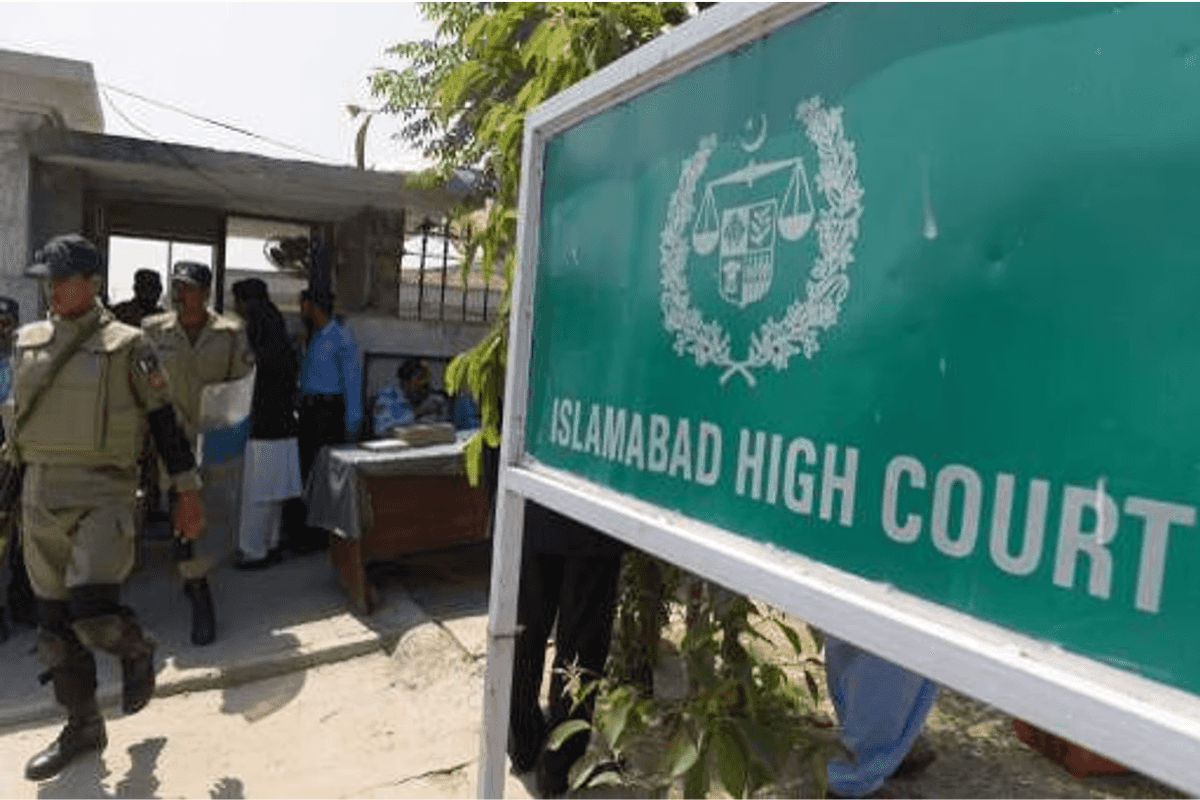Pakistan's Islamabad High Court judges protest 'unconstitutional' transfer plans in scathing letter
Letter to President warns against moving Lahore judge to IHC chief justice role
Ali Hamza
Correspondent
Ali; a journalist with 3 years of experience, working in Newspaper. Worked in Field, covered Big Legal Constitutional and Political Events in Pakistan since 2022. Graduate of DePaul University, Chicago.

Islamabad High Court.
AFP/File
Five senior judges signed joint letter opposing transfers from other provinces
Proposed transfers would violate constitutional requirements, procedures, say judges
Five senior judges of Pakistan's Islamabad High Court issued a strongly worded letter on Friday opposing what they describe as an unconstitutional attempt to reshape their court's leadership through the transfer of judges from other provinces.
The Islamabad High Court judges, some of whom made headlines last year for exposing alleged intelligence agency interference in judicial matters, warned that the reported plan to transfer judges from other high courts to Islamabad could undermine judicial independence and set a "pernicious precedent" with far-reaching consequences.
"Such a permanent transfer of a judge to the Islamabad High Court would be against the spirit of the Constitution, detrimental for the independence of judiciary, usurpation of established judicial norms, and also wholly unjustifiable," the judges wrote in their letter to President Asif Ali Zardari and top judicial officials.
The controversy centers on media reports suggesting plans to transfer a Lahore High Court judge to potentially serve as the Islamabad High Court's chief justice, along with another judge from Sindh province.
Judges challenge 'public interest' justification
The judges presented seven detailed arguments against such transfers, emphasizing that Pakistan's Constitution envisions independent, autonomous high courts rather than a unified federal judicial service.
The judges argued that any transferred judge would lose seniority under constitutional requirements, making their appointment as chief justice legally questionable. They cited Supreme Court precedents establishing that judges must take fresh oaths upon transfer, placing them at the bottom of the seniority list regardless of their previous service.
In their letter, the judges also challenged the public interest justification for such transfers, noting that the Islamabad High Court currently has 83% of its judicial positions filled, compared to only 58% in Lahore. They pointed to statistics showing the Lahore High Court faces nearly twelve times more pending cases than Islamabad, arguing that if case backlog were the concern, judges should be retained in Lahore rather than transferred.
This development comes just days after one of the letter's signatories, Justice Mohsin Akhtar Kayani, publicly suggested that Pakistan's recent 26th Constitutional Amendment — which significantly altered the judiciary's structure — was a response to the judges' earlier whistleblowing about intelligence interference.
"One letter has changed the entire system in Pakistan," Kayani said at a bar association event on Tuesday, in an apparent reference to the March 2024 letter about intelligence meddling.
Previous IHC letter in limbo
The controversy follows ten months of institutional tension sparked by the judges' explosive March 2024 letter, which alleged serious interference by intelligence agencies in judicial affairs. That letter, signed by six IHC judges, detailed claims of surveillance, intimidation, and even torture of a judge's relative, leading to widespread calls for investigation.
Despite initial momentum, including an attempted suo motu notice by then-Chief Justice Qazi Faez Isa and a proposed one-man commission under former Chief Justice Tassaduq Hussain Jillani, substantive action remained elusive. The Supreme Judicial Council reviewed the allegations in November but only agreed to "expand consultations," while warning against frivolous complaints.
As a Supreme Court justice earlier this year, current Chief Justice Yahya Afridi recused himself from hearing the landmark case, arguing that Supreme Court intervention would "negate the lessons moved into action by public sentiments."
The period also saw significant legislative changes through the 26th Constitutional Amendment, passed in October 2024. The amendment introduced sweeping reforms to Pakistan's judicial system, including limiting the Supreme Court's suo motu powers and empowering the prime minister to appoint the chief justice from among the three most senior Supreme Court judges.







Comments
See what people are discussing